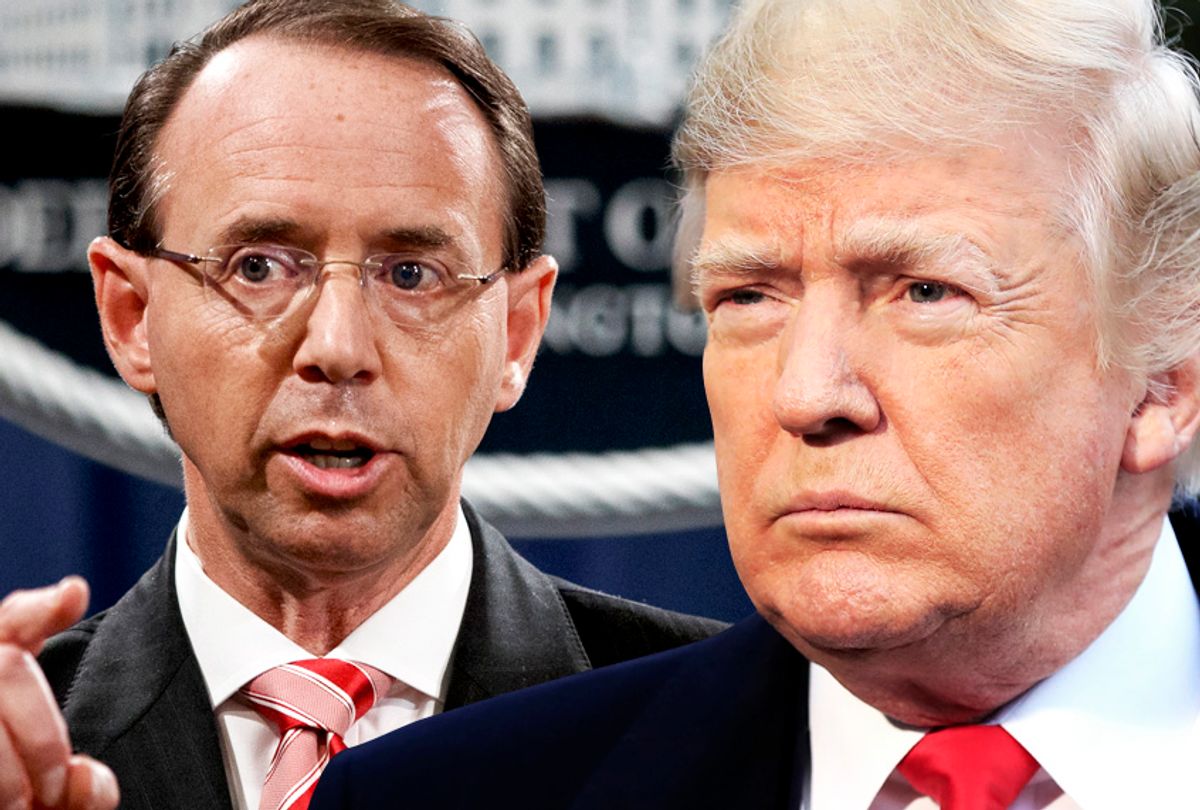Rob Rosenstein, the deputy attorney general overseeing special counsel Robert Mueller's probe into alleged collusion between President Donald Trump's 2016 and Russia, discussed an effort to lobby Cabinet members to invoke Article 25 of the Constitution, according to a new report from the New York Times published Friday afternoon.
The 25th Amendment of the Constitution allows for the removal of the president from office if a commander is deemed unfit to serve. The high-ranking Department of Justice official also reportedly suggested that he tape the president, without his knowledge, from inside 1600 Pennsylvania Avenue in order to "expose the chaos consuming the administration."
The New York Times further elaborates:
Mr. Rosenstein made these suggestions in the spring of 2017 when Mr. Trump’s firing of James B. Comey as F.B.I. director plunged the White House into turmoil. Over the ensuing days, the president divulgedclassified intelligence to Russians in the Oval Office, and revelations emerged that Mr. Trump had asked Mr. Comey to pledge loyalty and end an investigation into a senior aide.
Mr. Rosenstein was just two weeks into his job. He had begun overseeing the Russia investigation and played a key role in the president’s dismissal of Mr. Comey by writing a memo critical of his handling of the Hillary Clinton email investigation. But Mr. Rosenstein was caught off guard when Mr. Trump cited the memo in the firing, and he began telling people that hefeared he had been used.
Mr. Rosenstein made the remarks about secretly recording Mr. Trump and about the 25th Amendment in meetings and conversations with other Justice Department and F.B.I. officials. Several people described the episodes, insisting on anonymity to discuss internal deliberations. The people were briefed either on the events themselves or on memos written by F.B.I. officials, including Andrew G. McCabe, then the acting bureau director, that documented Mr. Rosenstein’s actions and comments.
For his part, Rosenstein vehemently denies the allegations. “The New York Times’ story is inaccurate and factually incorrect,” the deputy attorney general said in a statement to the outlet. “I will not further comment on a story based on anonymous sources who are obviously biased against the department and are advancing their own personal agenda. But let me be clear about this: Based on my personal dealings with the president, there is no basis to invoke the 25th Amendment.”



Shares